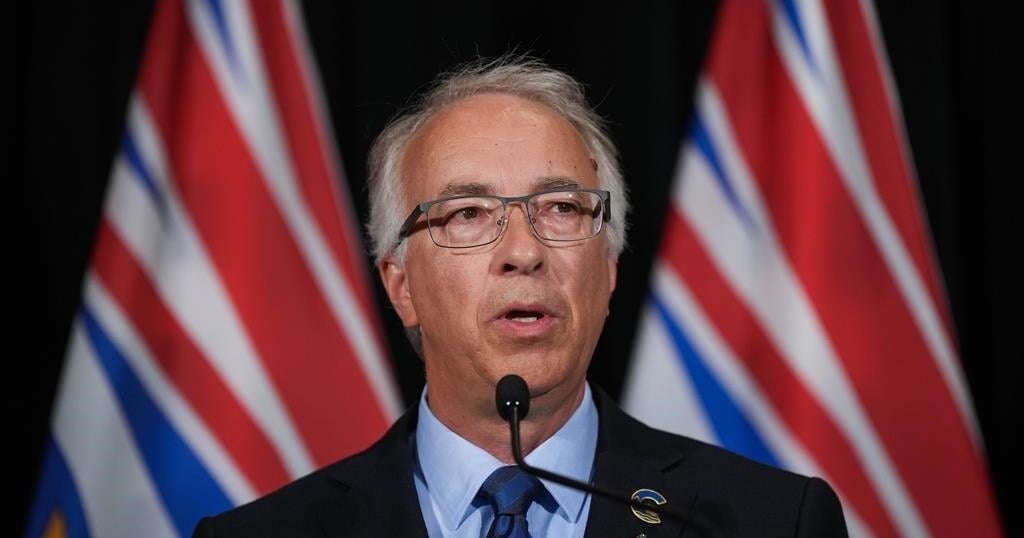The leader of B.C.’s Conservatives says there needs to be a conversation about nuclear power’s role in the province’s energy future and a review of educational materials he says are designed for “indoctrination” of children.
John Rustad, speaking on an episode of Canadian psychologist Jordan Peterson’s podcast released Monday, says he also wants to get rid of the carbon levy, which he calls “a vain attempt to change the weather.”
In the episode, which runs just over an hour and 45 minutes, Rustad and Peterson discuss a variety of topics including his revival of the B.C. Conservative Party as an election contender, energy and education policy, and what they call “cancel culture.”
Rustad says B.C.’s education system is “teaching kids what to think” rather than how to think critically, and some materials in the system are “designed for more of an indoctrination” than teaching kids important skills.
The party leader also says it was “crazy” for the former B.C. Liberal party to have banned nuclear power, saying the province needs to have “a conversation” about reconsidering its position, tying high energy costs to lower living standards.
Rustad said the ban was “because of politics” and a means of chasing votes, and that B.C. will eventually need more power and be open to nuclear technologies such as small modular reactors.
Rustad was a member of the B.C. Liberals, now known as BC United, until he was thrown out of the party caucus for downplaying the role of humans in climate change.
The B.C. Conservative Party’s slate of candidates remains in flux after BC United leader Kevin Falcon last week pulled the party out of the race, urging people to support Rustad to defeat David Eby’s NDP in the provincial election in October.
Rustad, who spoke to Peterson before the BC United withdrawal, says B.C. needs to learn its energy lessons from places such as Germany, where he says the decommissioning of nuclear plants meant a heavier reliance on fossil fuels that drove up costs and affected people’s quality of life.
He also takes aim at renewable energy technology such as solar panels, wind generators and heat pumps, saying that such devices are not reliable enough to support base load electricity demand or consumption.
“Wind and solar have their place, but they are additives to our energy mix,” Rustad says. “They’re not base load. They can’t be base load.
“Where you can drive down the cost is higher-density energy … When you look at uranium, the amount of energy you can generate out of uranium is phenomenally better from an amount of material you need as opposed to the other products,” Rustad says.
Rustad also calls the BC Liberals’ previous decision to ban nuclear power in the province was an example of politicians who “chase where they think the vote is as opposed to standing on the principles … that are needed to create a good society and quality of life.”
“Often, it’s not necessarily politics of the right or the left,” he says. “It’s just politics that is willing to actually stand up and say these are the values that we stand for … and ask people to support that, make the case as opposed to trying to pander to the various political positionings.”
Rustad says the current B.C. power grid is almost completely green “if you consider hydro power green,” but the province doesn’t have enough and is already a net-importer of electricity with no plans to build additional dams.
“And this is where we actually have to start having that conversation about nuclear, whether it’s small modular reactors or other types of nuclear technology,” he says. “We’re going to need that power in British Columbia.”
On the carbon levy, Rustad says “it makes no sense whatsoever” to be “taxing people into poverty.”
He adds that such a charge adds costs to goods from B.C. and Canada that make exports less competitive globally, further cutting into Canadians’ capacity to generate wealth.
This report by The Canadian Press was first published Sept. 3, 2024.
